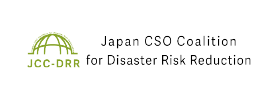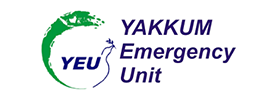ADRRN Tokyo Innovation Hub (ATIH) was launched in 2017 as the first hub function of Asia Disaster Reduction and Response Network (ADRRN) to promote community-led innovations and its culture mainly through partnering with other ADRRN members. ATIH has been hosted by CWS Japan since its launch.
MEMBERS

General Secretary of CWS Japan. Also serves as Secretary General and a member of Executive Committee for Asian Disaster Reduction and Response Network (ADRRN), and Regional Steering Group member of World Humanitarian Summit (WHS). In addition, he plays joint secretariat function for Japan CSO Coalition for DRR (JCC-DRR), Steering Group member of Humanitarian Innovation Forum Japan. He graduated from Doshisha University, and holds Development Studies M.A. from Brandeis University.

An inclusive business specialist with 15 years professional experience in international development, business development and management consulting.





